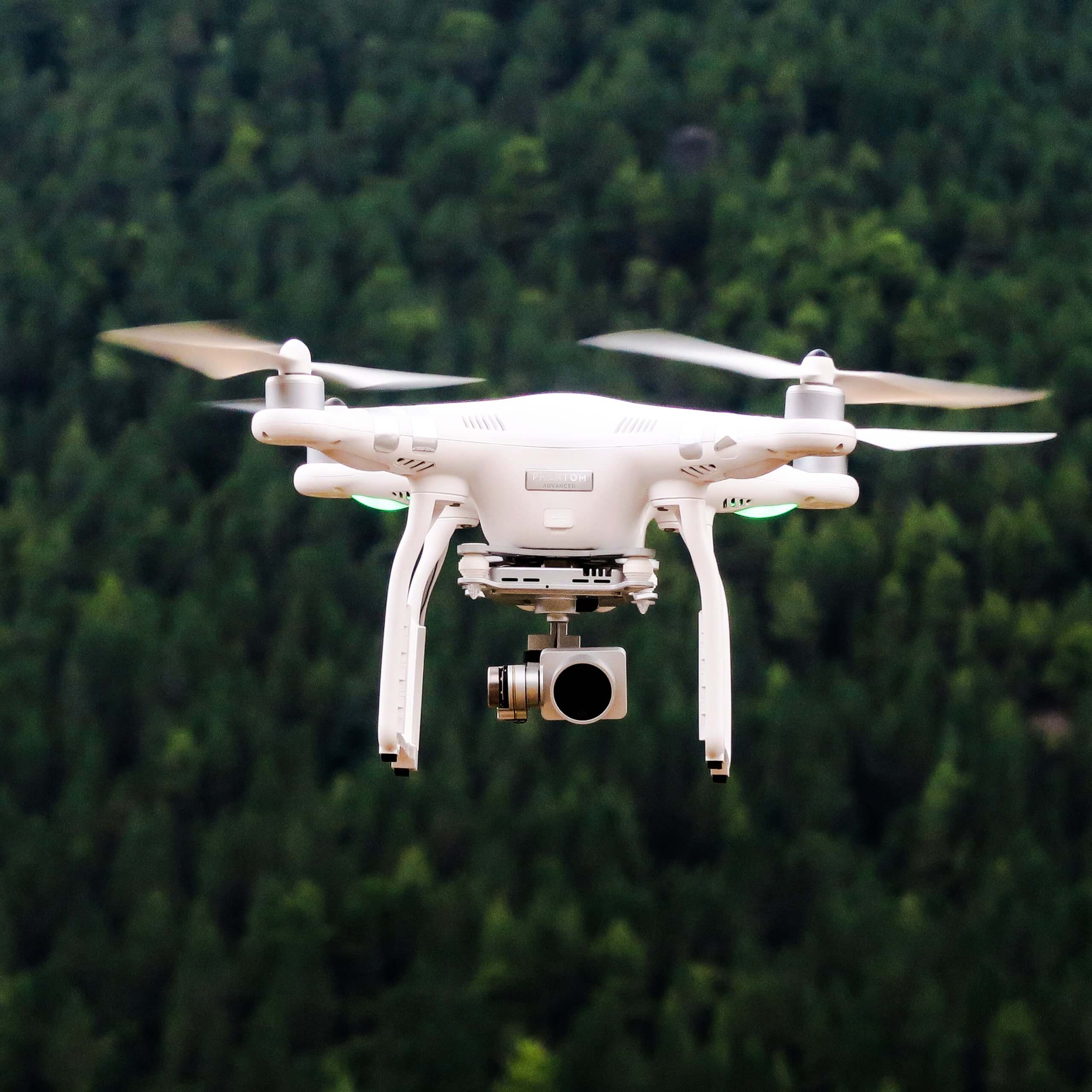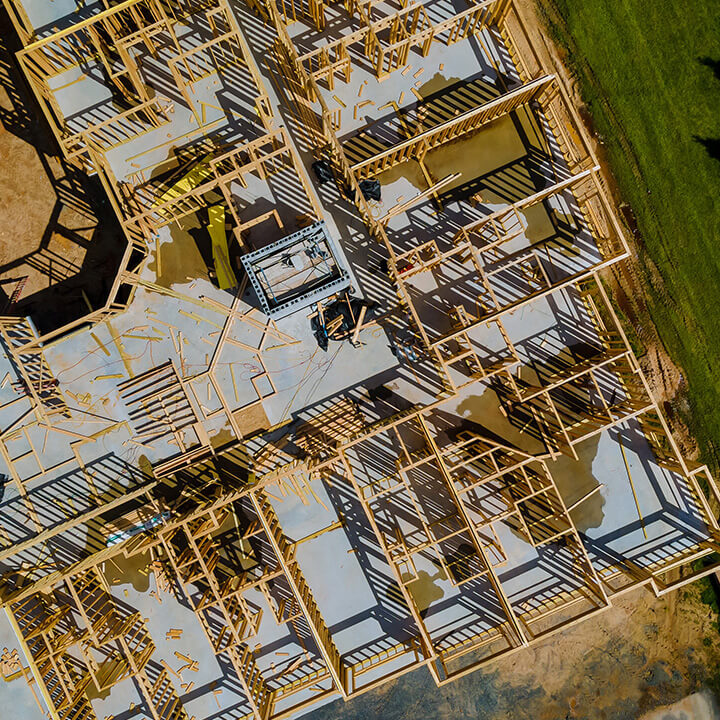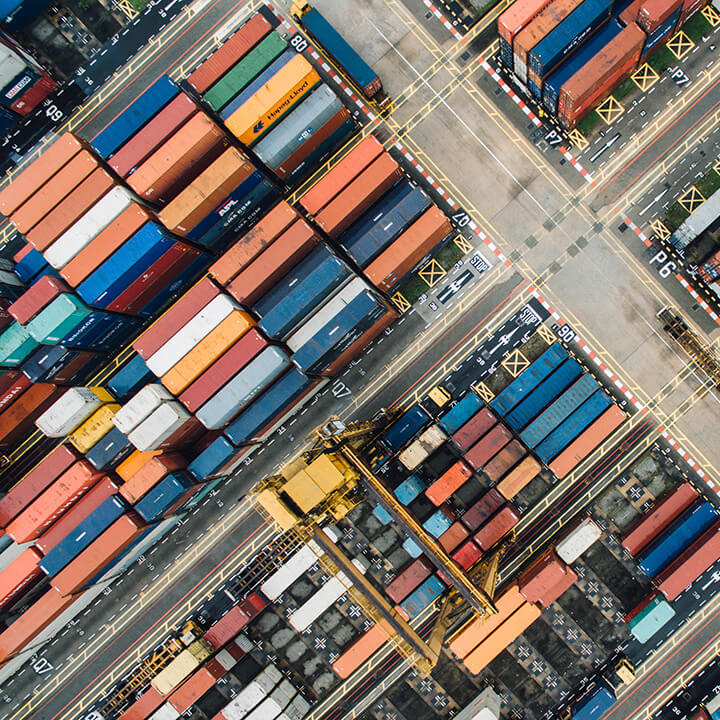Drone deliveries: Food for thought
27th November 2023
The Topline
“The rapid advancement of technology is reshaping the landscape of logistics and transportation. Among the most transformative innovations is the integration of drone delivery services into the supply chain. While drones offer the promise of faster, more efficient deliveries, they also bring a host of legal challenges.”
– James Crayton, Partner, Commercial


In this article Walker Morris’ Logistics experts James Crayton and Adam Reed discuss real-world implications of drone deliveries and associated legal issues.
What do drone deliveries look like today?
If, like us, you enjoy your morning coffee, and would like it from the comfort of your own bed, then it might be time to get excited about drone deliveries. A Dublin based drone delivery company, Manna, is now offering lightning-fast suburban deliveries in Ireland and the US, supporting local businesses and boasting safe delivery within minutes. That’s all great, but drone delivery could soon have a significant impact on a much wider scale.
UK-based drone logistics company Skyports Drone Services has partnered with Norwegian energy firm Equinor with the aim of delivering supplies and other cargo to off-shore drilling platforms located in the North Sea. Skyport is aiming to demonstrate how drone services can solve logistical challenges and improve safety and sustainability in the offshore environment. The director of Skyports Drone Services, Alex Brown, has said “this project proves that drone delivery can offer a safer, cost-effective, more sustainable alternative to conventional transport methods in offshore environments. We are currently exploring how we can expand this groundbreaking work into adjacent sectors such as offshore wind and ship resupply”.
And drone delivery could even save your life! In January 2020 the CAELUS (Care and Equity – Healthcare Logistics UAS Scotland) network was launched in Glasgow. Fiona Smith, CAELUS project director, said “the CAELUS project is set to revolutionise the way in which healthcare services are delivered in Scotland. A drones network can ensure critical medical supplies can be delivered more efficiently, it can reduce waiting times for test results and, more importantly, it can provide equity of care between urban and remote rural communities.”
Drone delivery: What are the legal issues?
Primarily, the law relating to the flight of drones is governed by statute. Section 60 of the Civil Aviation Act 1982 and the Air Navigation Order 2016 SI 2016/765 regulate and place obligations on drone operators and pilots. See our earlier article for more detailed information on the law governing drone usage.
A legal complication arises, however, with the use of drones’ cameras and recording equipment. Drones equipped with cameras and sensors may inadvertently capture images or collect data from private properties or individuals. In the UK, an individual’s right to privacy is governed by a combination of legal principles and legislation. For example:
- Flying drones over someone’s property could, in theory, contravene the Human Rights Act and impede an individual’s right to privacy.
- Should a drone or the technology involved in its use inadvertently record any personal data, data protection legislation and regulation would come into play.
Businesses therefore need robust data security policies and measures in place, to protect any data collected during drone operations.
Common Law principles can also govern the use of drones. For example, flying a drone over an individual’s property could amount to trespassing. Drones can be loud and, should they be flown persistently, that could also constitute a noise pollution and/or public nuisance offence.
And there are other legal and practical considerations for supply chain operators/logistics professionals:
- Will it be preferable for the business to operate its own fleet or to contract with third-party drone delivery providers? If the latter, on what terms?
- What risk management measures are in place to ensure flying with care?
- If an operator or pilot intentionally or recklessly hits someone with a drone, liability for battery could arise, which carries both criminal and civil sanctions.
- Intentional or reckless damage to someone else’s property occasioned by a drone could amount to criminal damage.
- Flying a drone without exercising a reasonable standard of care could cause injury to persons or damage to property, potentially giving rise to civil liability in negligence and necessitating the payment of financial compensation.
- From a commercial perspective, any failure to fly with care which results in a headline-hitting accident, could also have significant public relations consequences.
- Fulfilment and supply chain issues. Whether drone delivery will be used direct to customers or elsewhere within the supply chain, consideration will need to be given to appropriate terms and exclusions in all relevant contractual arrangements. Matters to take into account will (non-exhaustively) include delivery failures due to mechanical, technical or communication faults; damage to goods; delays; and so on.
Drone deliveries and logistics: How we can help
Innovations and advances in drone delivery services have the potential to revolutionise supply chain logistics. Delivery of an increasing range of items can now be achieved more quickly and efficiently than ever before. However, the legal issues surrounding drone operations can be complex and multifaceted. To navigate this evolving landscape successfully, logistics professionals must stay informed about the ever-changing regulatory environment, obtain the necessary licences and permits, and prioritise safety, privacy, and socio-environmental concerns. Proactively addressing legal challenges will enable responsible businesses to reap the benefits of this transformative innovation, while maintaining compliance with the law and safeguarding their reputations.
Walker Morris Logistics Group is a team of dynamic, commercially focused lawyers, providing clients with expert advice on a broad range of logistics and distribution related matters. We understand the industry as a whole, which means we can deliver holistic and commercially pragmatic advice to our clients. Working seamlessly with our Technology & Digital and Regulatory experts, we can provide upfront, comprehensive commercial and risk management advice on policies, procedures and contractual arrangements to ensure your drone delivery projects fly! If or when any issues do arise, our dispute resolution specialists can offer straightforward, strategic solutions.
Please contact James Crayton or Adam Reed for further information or advice.
Drone deliveries: How we can support you
Our lawyers take a multi-disciplinary, commercially focused approach to supporting our clients across the full range of commercial legal services.
We’re proud of the sector knowledge and expertise we’ve developed over many years, and we’re confident that this enables us to work in partnership with our clients. We speak your language and our legal advice is always in tune with the industry issues of the day – whatever they may be. If you need support with this area of law in particular, contact James, Adam or our Commercial or Logistics teams to find out how we can assist you.










